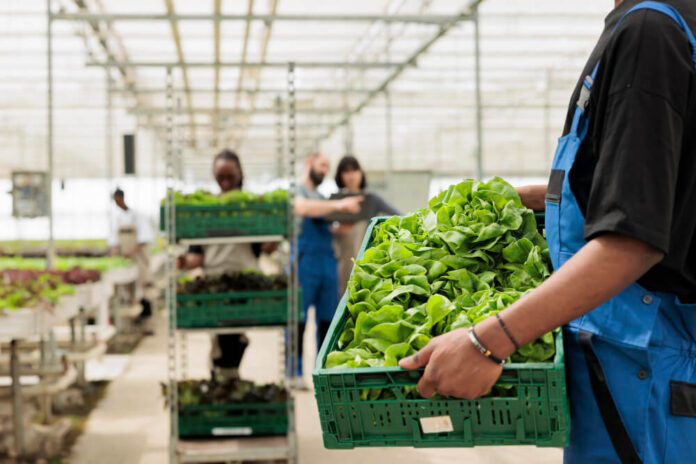Starting an agricultural supply store in your local area can be rewarding and profitable. As the demand for agricultural products and services continues to grow, there is a considerable opportunity for entrepreneurs to establish a thriving ag supply store.
But if you are new to this kind of business, there is more you need to do than just being happy to open your business. So, in this article, we will explore how you can start an ag supply store in your area and what products you can stock.
From replacement hydraulic cylinders to fencing equipment, offering a vast spectrum of products to meet the various needs of your agricultural customers is very important. But don’t worry; this comprehensive guide will take you through the essential steps you need to get your Ag supply store running.
How to Start an Ag Supple Store in Your Area
#1: Conduct Thorough Market Research
Before diving into the business, conducting thorough market research is crucial. Understand the agricultural landscape in your area. Identify the needs of local farmers, ranchers, and agricultural companies. You can accomplish this by surveying local farmers and agricultural businesses to gauge their requirements and preferences.
You can also analyze the competition in the area to identify gaps in the market. That way, you can easily tailor your offering to fill that gap. Additionally, you will need to consider the size and growth potential of the agricultural industry in your region. That will give you enough knowledge of what to do and what to expect.
#2: Create a Business Plan
A well-structured business plan is the foundation of any successful venture. Outline your business goals, target audience, and strategies for reaching them. Your business plan should include:
- Financial projections, including startup costs and revenue forecasts.
- Marketing and advertising strategies to attract customers.
- A detailed description of the products and services your store will offer.
#3: Secure Financing
Starting an ag supply store may require significant upfront capital. Depending on the scale of your business, you may need funding for purchasing inventory, leasing or buying a storefront and covering operational expenses.
So, when starting such a business, it is important that you first figure out where you will be getting your finances. Some options you can explore here include taking loans, grants, or investments from partners or investors.
#4: Choose the Right Location
Just like it is for any type of business, selecting the right location for your ag supply store is critical to its success. Look for a space easily accessible to your target audience, such as farmers and ranchers.
Proximity to agricultural areas can also be an advantage. Ensure that the location has adequate parking and storage space for your inventory.
#5: Stock a Diverse Range of Products
As we said earlier, to cater to the needs of your agricultural customers, you should consider stocking a diverse range of products. Some examples of items you would need to store include:
- Livestock Fencing: Offer various fencing options, including wire, wood, and electric fencing, to suit different livestock needs.
- Water Troughs: Provide water troughs of various sizes and materials to ensure proper animal hydration.
- Feed Supplies: Stock a wide range of animal feeds, including grains, hay, and specialized feeds for different species.
- Replacement Hydraulic Cylinders: Cater to the needs of farmers and equipment operators by offering aftermarket replacement hydraulic cylinders for tractors and other machinery.
- Tractor Parts: Inventory essential tractor parts and accessories, such as belts, filters, and engine components.
- Farm Tools and Equipment: Offer tools commonly used in agriculture, such as shovels, rakes, plows, and harvesting tools.
#6: Build Supplier Relationships
Establish strong relationships with suppliers to ensure a constant and reliable inventory. Negotiate favorable terms and prices with suppliers to maximize your profit margins. Multiple suppliers can also provide backup options in case of shortages or supply chain disruptions.
#7: Focus on Customer Service
Exceptional customer service is key to building a loyal customer base. And for your Ag supply store business to thrive, you will need to be ahead in this aspect. So, train your staff to be knowledgeable about agricultural products and offer assistance to customers. Consider providing delivery services and be responsive to customer inquiries and feedback.
#8: Develop an Online Presence
In this digital landscape, having an online presence is essential. Create a user-friendly website showcasing your products and allowing customers to order online. Make use of social media platforms to engage with your audience, share valuable content, and promote your store.
#9: Marketing and Promotion
Promote your ag supply store through various marketing channels. Utilize traditional methods like flyers, local newspapers, radio ads, and digital marketing such as social media advertising and search engine optimization (SEO). Consider hosting workshops or events related to agriculture to attract potential customers.
#10: Monitor and Adapt
The agricultural supply industry is also a constantly evolving one. That means you will need to stay updated to be relevant and have an edge over the competition. So, regularly monitor your business’s performance and adapt to changing market conditions.
Keep track of inventory turnover, customer feedback, and sales trends. Adjust your product offerings and marketing strategies accordingly to stay competitive and meet the developing needs of your customers.
Final Note
Starting an agricultural supply store can be fulfilling and profitable when approached with careful planning and dedication. By following the steps we have highlighted in this article, you can establish a successful ag supply store that meets the needs of local farmers and contributes to the growth of your community’s agricultural industry.
Remember that building strong relationships with suppliers and continuously adapting to market changes are keys to long-term success in this field. With the right approach and commitment, your ag supply store can thrive and become an integral part of your local agricultural community.
















